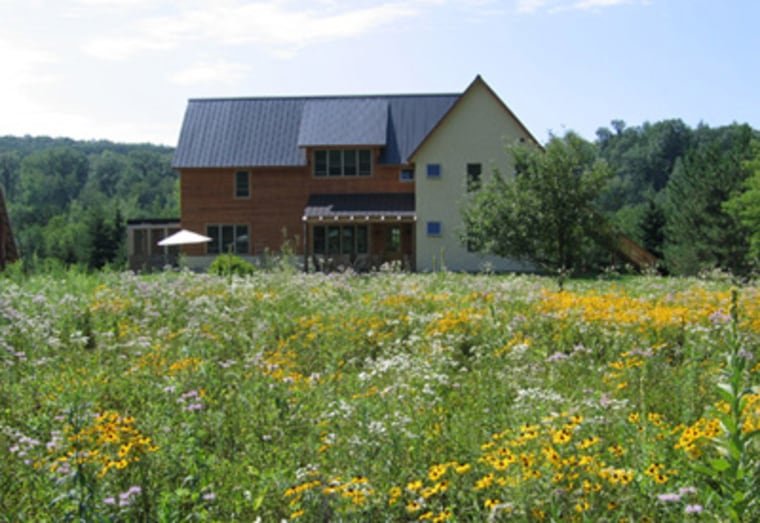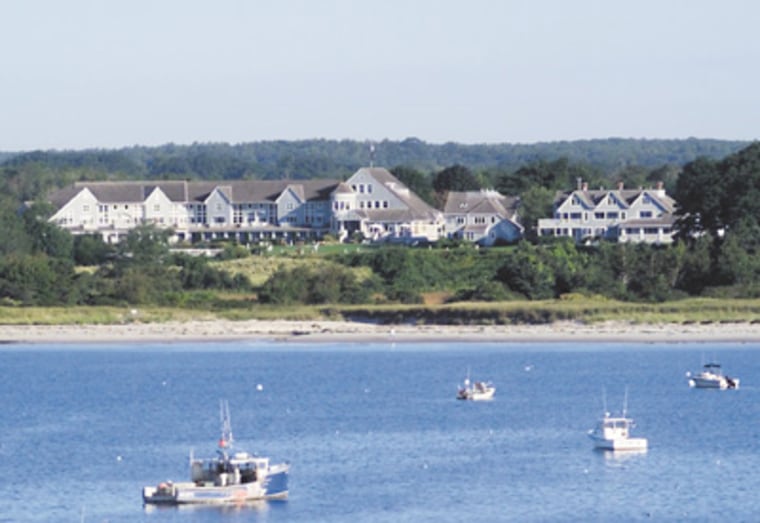Let’s face it — hotels are wasteful: room after room of fresh bedding, tiny soaps, shower heads closer akin to fire hoses, copies of USA Today you never requested and may never read. Sure, notices in the bathroom say that if you care about the Earth you can request your towels not be changed. And what happens? Housekeeping changes them anyway.
But change was afoot even before the release of "An Inconvenient Truth." Groups like the Green Hotels Association and the California Green Lodging Program have been set up to promote and reward eco-efforts, and there’s a trade magazine now called Green Hotelier. Hotels want in on the trend and on the promotional possibilities, so they’re burnishing their eco-resumes, finding that it not only helps protect the Earth and cut costs, but it’s also good public relations.
"We realize that sustainable tourism must have a positive impact on the environment, the traveler, and the local community,” said Michelle White, Director of Environmental Affairs for Fairmont Hotels & Resorts. “We receive positive feedback not only from our guests, but from our owners, who recognize that being good environmental stewards is actually good for business.”
In fact, Fairmont has been on the cutting edge of eco-friendly measures since 1990. In 2006, The Fairmont Sonoma Mission Inn & Spa in California completed an extensive lighting retrofit, replacing 4,440 incandescent bulbs with energy-efficient fluorescent lighting. The company is launching Eco Meet, so businesses can have green conferences. And if you drive your hybrid car to any Fairmont in California, you can park for free.
Unfortunately, not all hotels are so committed. The industry is awash in a common practice called “greenwashing,” which involves taking grand bragging rights about minor, token efforts. With environmentalism having a consistent coolness factor for consumers (think Toyota’s Prius, Whole Food organic groceries, and fair-trade Starbucks coffee), industries are scrambling to out-green each other.
So what makes a hotel green? Although there are plenty of non-government standards (such as the renowned Green Seal), the Environmental Protection Agency’s U.S. Green Building Council has a rating system for environmental buildings called LEED (Leadership in Energy and Environmental Design). It’s truly the gold standard in eco-construction. Very few buildings, let alone hotels, are LEED-certified.

But there are a couple: The Hilton in Vancouver, Washington was renovated to receive a LEED certification, and the Orchard Garden Hotel in San Francisco was built to LEED-certified specs. “It’s not mutually exclusive anymore to be green and luxurious,” said Stefan Mühle, the general manager of the Orchard Garden (and its sister property, the Orchard). “It’s not all Birkenstocks, granola and austerity. It’s not just a fad; it’s bound to become a standard, so it makes sense to get on board early.”
The lengths Mühle’s hotels go to are impressive: In addition to using citrus-based cleaning agents, everything is washable (as opposed to Scotchguarding or dry cleaning), right down to the upholstery on the furniture.
Kimpton is another chain that’s going to great lengths. Every room in all 40 of their U.S. properties has recycle bins, water-efficient faucets and toilets, and energy-efficient lighting. They clean the rooms with non-toxic cleaners. And your bill? It comes on recycled paper using soy ink. The chain’s Hotel Triton (yes, also in San Francisco) started the ball rolling, and while eco-practices run throughout the hotel, its 7th floor eco-rooms have especially stringent rules. Its efforts have been so impressive that the state of California identified the Triton as the model hotel for the entire lodging industry.
And from urban centers to rural areas, hotels are trying live up to the model. Alpine House, in Jackson Hole, Wyoming, gets all of its energy from wind power plants. The Crowne Plaza Cabana in Palo Alto is California’s only solar-powered hotel. The Habitat Suites Hotel in Austin powers both its electricity and water with solar energy. And the luxe El Monte Sagrado in Taos, New Mexico can filter waste water into pure drinking water without harmful chlorination.
And finding green hotels is getting easier as booking engines are getting into the game. Last October, for example, the online hotel discounter Quikbook.com launched a filter to search for green hotels.
Green practices can be confusing to casual customers, though. The Vancouver Hilton, for example, brags about how its windows can open, helping fresh air circulate. But the Orchard Garden boasts the opposite: sealed windows that allow for total climate control. And while some features are very visible, such as the Vancouver Hilton’s alternative fueling stations for electric cars; others go unseen, such as the Orchard Garden’s fly-ash-in-concrete infrastructure.
But even if you’re not booking your own hotel room, there are ways you can be environmentally friendly wherever you go. “The number one thing you can do anywhere you go,” said Patricia Griffin, a spokeswoman for the Green Hotels Association, “is call housekeeping and let them know you don’t need new towels and sheets every day. Closing the drapes keeps it cooler in the summer and warmer in the winter. And, if you use a little soap or a little shampoo, take the rest home with you and use it until it’s finished; because it’s just going to get thrown away.”
So we tucked a flower behind our ear, put on our white gloves, and scoured the country for hotels that will keep you green long after Earth Day is over.
